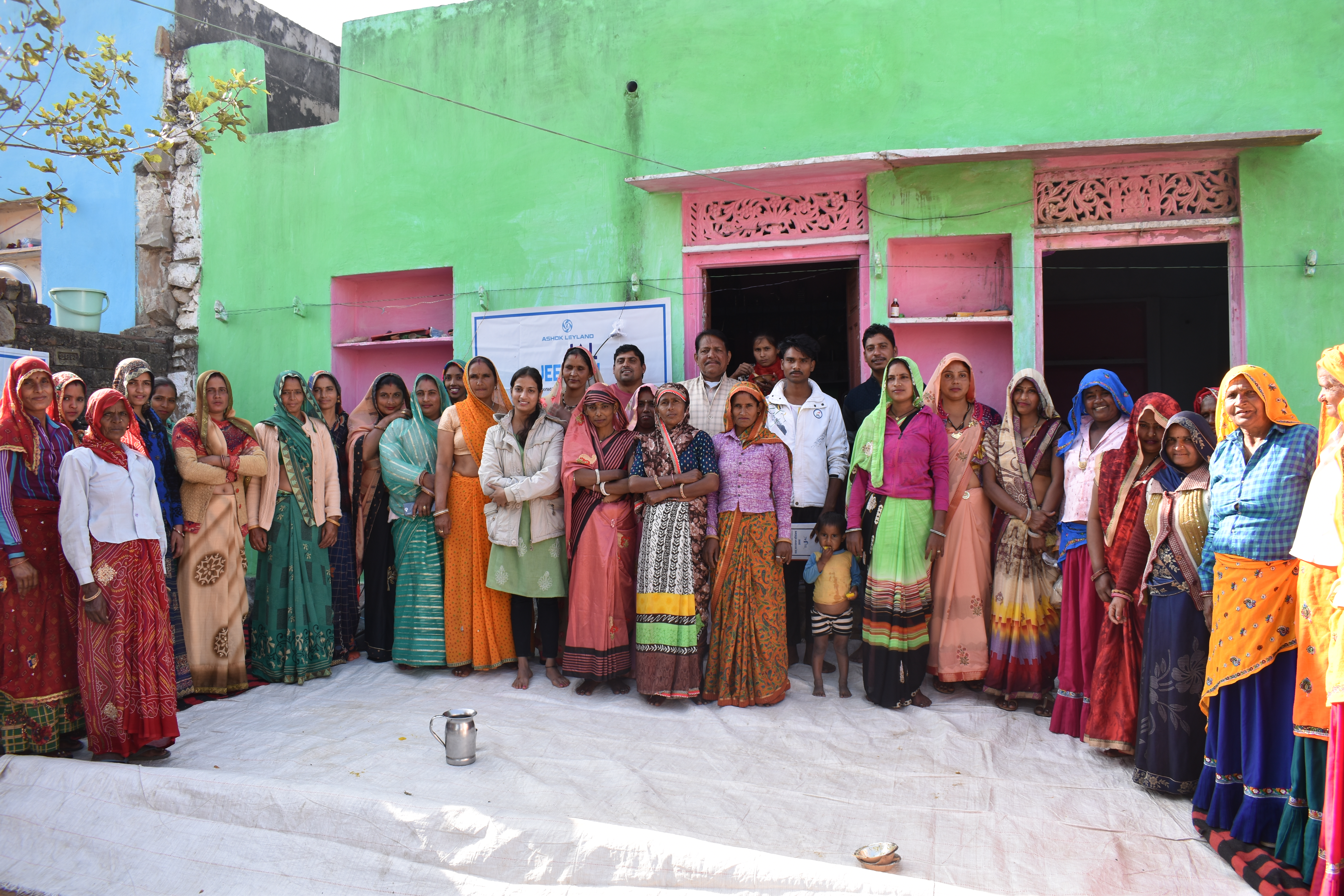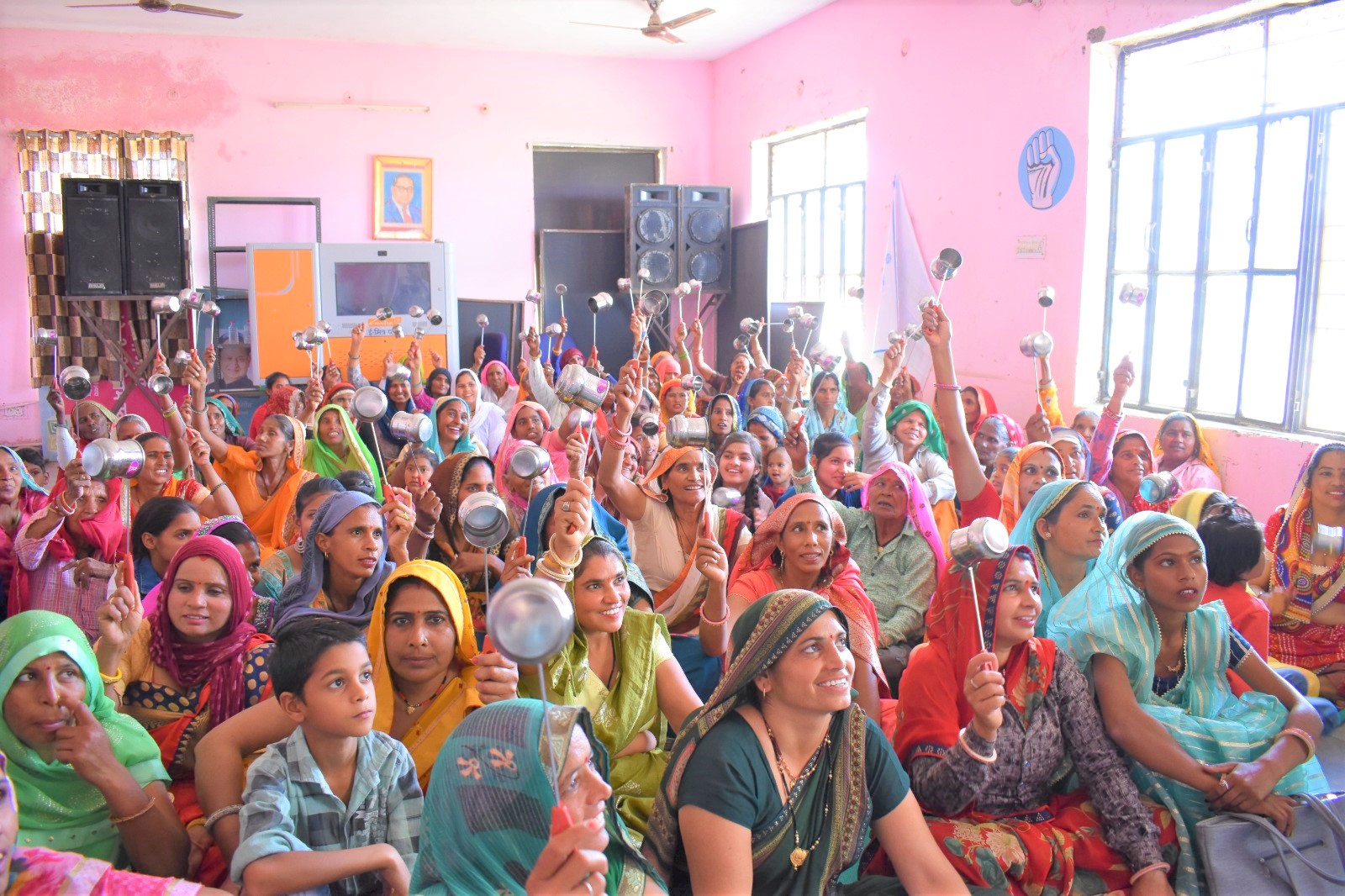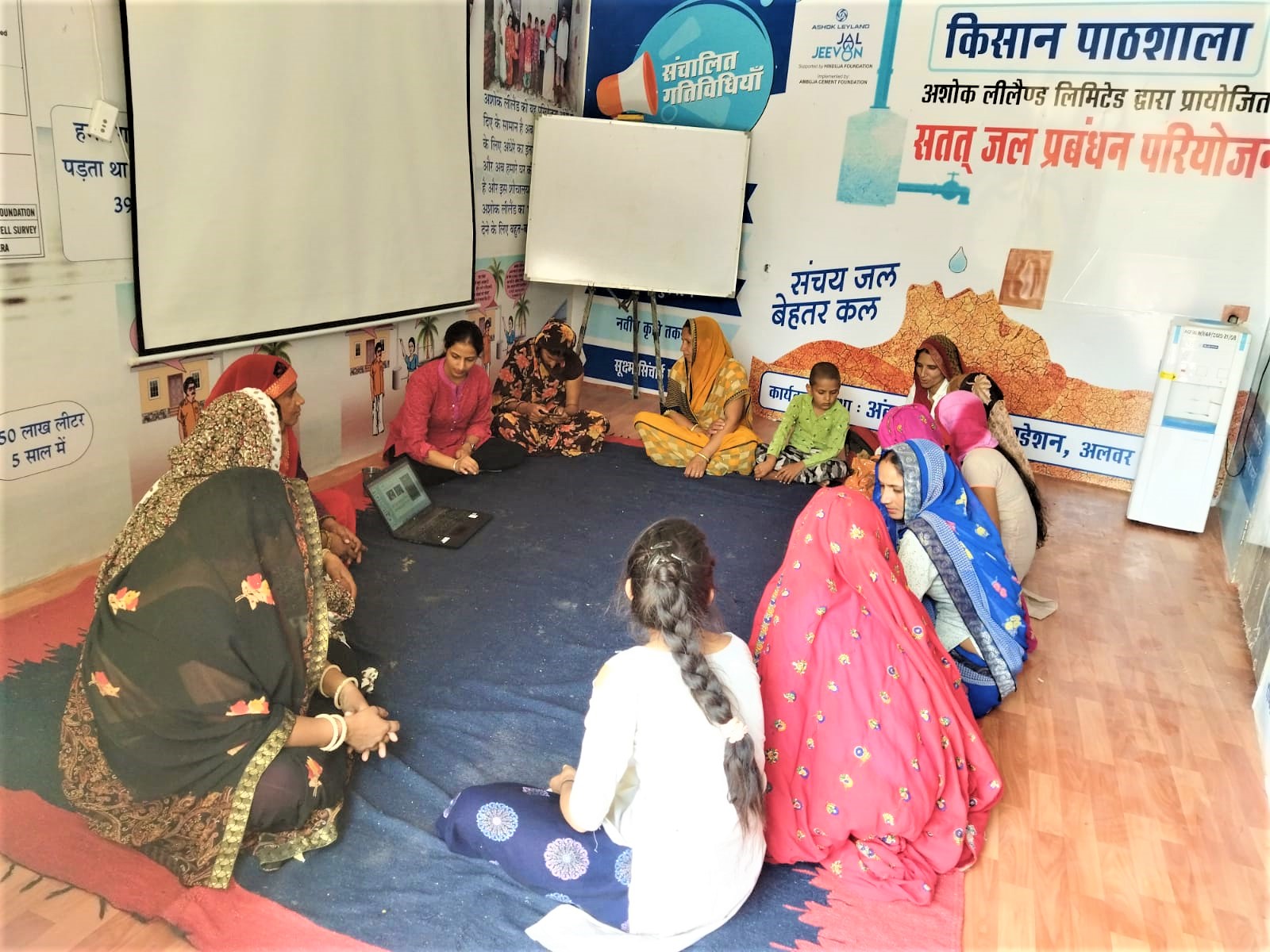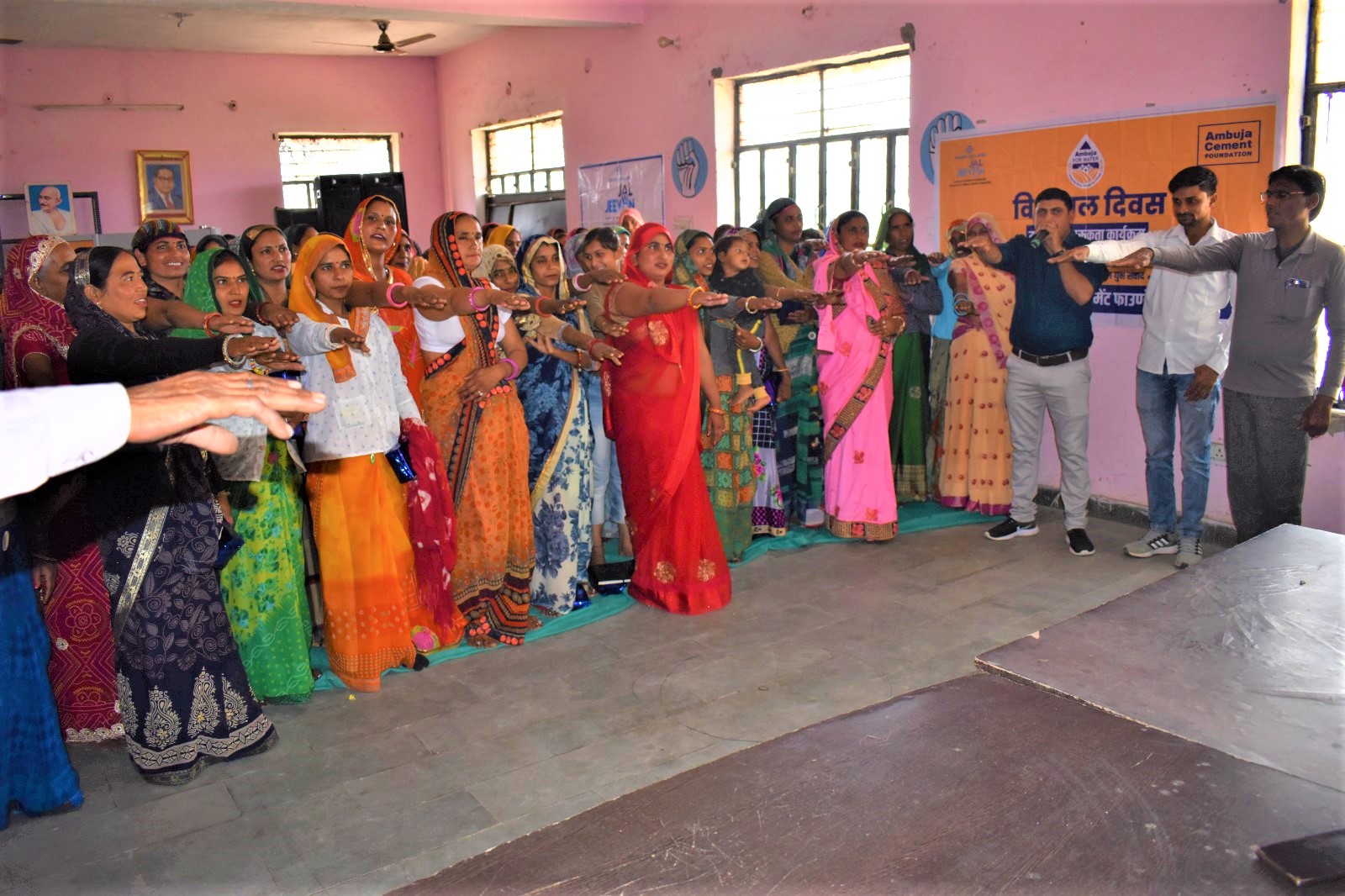In rural India, where people are dependent on groundwater or weekly municipal water supply, getting fresh water every day is a major household chore, mostly shouldered by women. On an average, it takes about three hours to fetch water to meet the needs of a family of four - a rough estimate for when the water source is within a 2 to 5 km radius.
In rural Rajasthan, however, the number can go up to four hours, including the time for travel on foot. This is because in places like Rajasthan the groundwater table is reported to be going down by a meter a year! Yet, the water demands of the population continue to increase – currently outstripping supply by about 30%. In such a situation, programs aimed at education, literacy and other social welfare fall by the wayside since at least half of the community is focused on fulfilling basic needs, like fresh drinking water.
All thanks to the support of Ashok Leyland, Ambuja Foundation began to identify women volunteers - especially women farmers - from each village of Alwar district of Rajasthan to become ‘water leaders’ to drive this cause - calling them ‘Sujal Jankars’.
Ambuja Foundation is the implementation partner of Ashok Leyland, carrying out sustainable water resource management initiatives in communities surrounding the Ashok Leyland plant.
This small band of women are in charge of collectivize women to create greater awareness on the efficient use of rainwater; promote the installation of Rooftop Rainwater Harvesting Systems; measure and track drinking water levels; monitor the quality of water to ensure safe drinking water access; and promote female hygiene management.
This program operates on the core belief that a women-centric, bottom-up approach is the most effective way for grassroots-level change. Putting women at the centre, and in the spotlight, automatically transfers the power to them. All that’s needed further is a comprehensive education program to ensure this power is used responsibly.
Completely led by women, the Sujal Jankar movement (part of Ambuja Foundation’s Participatory Groundwater Management Program) began to mobilise women to discuss the water issues faced in communities. This group, called Sujal Mahila Sangh, met to collectively address issues on water scarcity, available government schemes and personal hygiene.
Apart from spreading awareness about our most critically endangered resource, water, the group also serves as a larger platform for starting conversations about women’s issues in general. By using water as a starting point for dialogue and action, broader conversations about empowering women on all levels were enabled.
In many communities, gender or caste-based discrimination may prevent certain groups from accessing clean water sources due to social and cultural taboos. Sujal Jankars ensure that members of traditionally marginalized groups are included in groups like Sujal Mahila Sangh also, to subvert these social barriers.
To date, the Sujal Jankars have conducted over 200 trainings, which have raised awareness among over 3300 women about safe drinking access, menstrual hygiene management, and other women's rights. Further, Sujal Jankar members conduct regular meetings with SHG members, to provide women with accurate information on these issues and other Ambuja Foundation project interventions.
True change can only be affected when the cause is significant in a community’s life – and in a state like Rajasthan, there is no more significant issue than water. But by using water as a starting point for engagement and conversation, other social issues can come to the fore also. With an empowered set of Sujal Jankar women leaders, they can take up these issues also, in collaboration with other women in the community
Let us wait and watch to see what change the Sujal Jankars bring about next …











